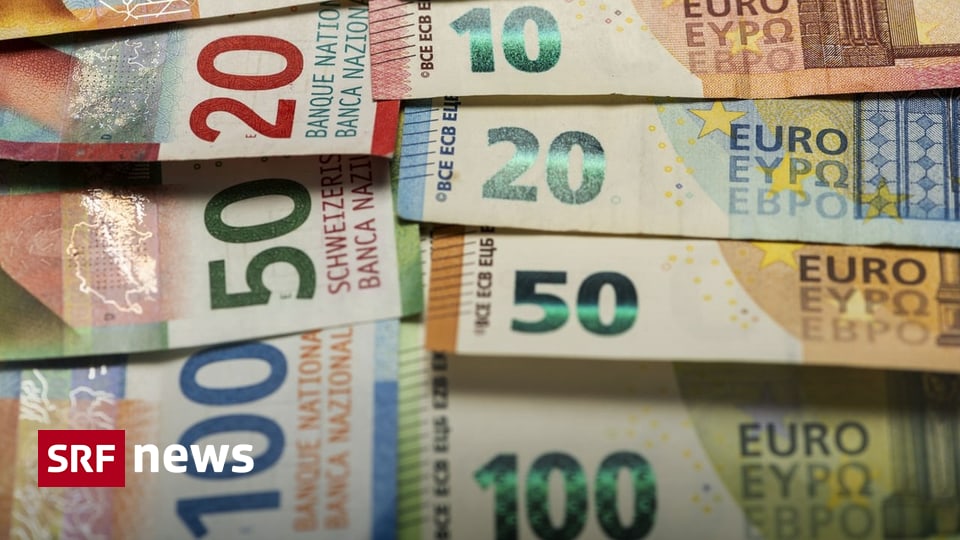Contents
In view of the budget crisis, the SPD has indirectly campaigned for the debt brake to be suspended in 2024. Whether in German financial policy or in the Swiss federal budget: the debt brake is a concern. How important is it?
How does the principle of the debt brake work? The Swiss debt brake works according to the principle of grandmother’s budget booklet. The state is not allowed to spend more than it takes in over time. If the economy is going badly, the government is allowed to take on new debt. When things go well again, he has to compensate for this. The state is not allowed to take on any new debt in the long term. This leads to an ever lower debt ratio over the years.
SPD indirectly calls for the debt brake to be suspended for 2024
Open box Close box
The SPD has indirectly campaigned for the debt brake to be suspended in 2024. The delegates at the federal party conference decided unanimously on Saturday that “constitutionally stipulated scope for the budget” must be used in the interests of the population. Politically, the war in Ukraine created the prerequisites for an emergency that would enable increased borrowing.
However, the wording could leave room for interpretation. Party leader Saskia Esken emphasized: “We cannot manage the crisis from the normal budget.” The debt brake exception rule must be applied again. With the party conference resolution, Chancellor Olaf Scholz (SPD) is now starting further negotiations on the federal budget with Vice Chancellor Robert Habeck (Greens) and Finance Minister Christian Lindner.
When will the debt brake come into play? It is particularly important when the economy is doing well. During these times, the federal government makes surpluses. There is a great temptation for politicians to spend this money. The debt brake ties politics back. The surplus should be used to reduce debt built up during the recession or to build reserves for future difficult times.
20 years of the Swiss debt brake
Open box Close box
Legend: Federal Councilor Karin Keller-Sutter speaks at the anniversary celebration of the debt brake. She still proves herself. Keystone/Marcel Bieri
The Swiss debt brake has already been in force for 20 years. Politicians and economists are using the anniversary to sing the praises of the debt brake. When voters voted on the debt brake in 2001, 85 percent approved. This instrument therefore has great legitimacy. It probably also fits somewhat with the self-image of many Swiss people, with this image of a frugal and financially serious Switzerland.
Is there criticism of the debt brake? The main criticism is that the debt brake forces the federal government to save money and therefore prevents investments.
Can the federal government circumvent the debt brake? There aren’t exactly any loopholes. But there are exceptions. The debt brake is defined in Article 126 of the Federal Constitution. This stipulates that Parliament can allow the government to take on debt in the event of an extraordinary need for payment. Parliament also did that during Corona.
Which loophole did the German government want to use? In Germany, money that was earmarked for dealing with the Corona crisis remains. The German government has put this money into the climate fund for energy transition projects. The Federal Constitutional Court stopped the project.
Why is the debt brake criticized in Germany? One reason is that the German debt brake is much less old than in Switzerland. And it was not decided by the people, but by parliament. It is much less deeply anchored than in Switzerland. Another reason is that Germany’s infrastructure is not in good condition in many areas – trains, internet, schools. Many citizens, politicians and economists attribute the investment backlog to the debt brake. In addition: The latest ruling by the Federal Constitutional Court has further restricted the traffic light coalition’s scope for action. The debt brake is also blamed for this.
Legend: The debt brake in Germany is much more criticized than in Switzerland. It is also younger: it was decided in 2009 after the financial crisis. But it has only been in force for the German federal government since 2016 and for the federal states since 2020. Keystone/DPA/Michael Kappeler
What have the debt brakes achieved in Switzerland and Germany? In Switzerland, the debt brake led to a significant reduction in the debt ratio – at least until Corona. Because the debt ratio was so low before, it is now also at a low level. It’s similar in Germany, even if the debt ratio is much higher than in Switzerland. However, the debt reduction in Germany is not only due to the brakes, but also to other factors. Germany was already saving before the debt brake in the 2010s.
Who is better off when it comes to the debt brake? It depends on what you call good or bad. The federal government has a debt ratio of just over 15 percent, Germany over 60 percent. Compared to other countries, Germany’s debt is very low. On the other hand, the EU’s Maastricht Treaty stipulates a maximum debt of 60 percent for EU countries.
Legend: In Italy the national debt is over 140 percent of GDP, in Japan it is over 260 percent. The situation in Germany is not alarming, but whether it is good is a matter of interpretation. Keystone/DPA/Boris Rössler
